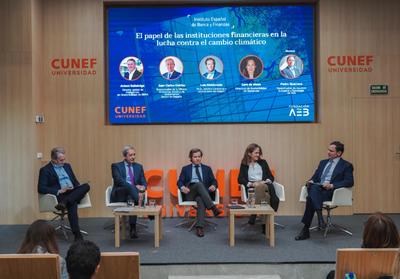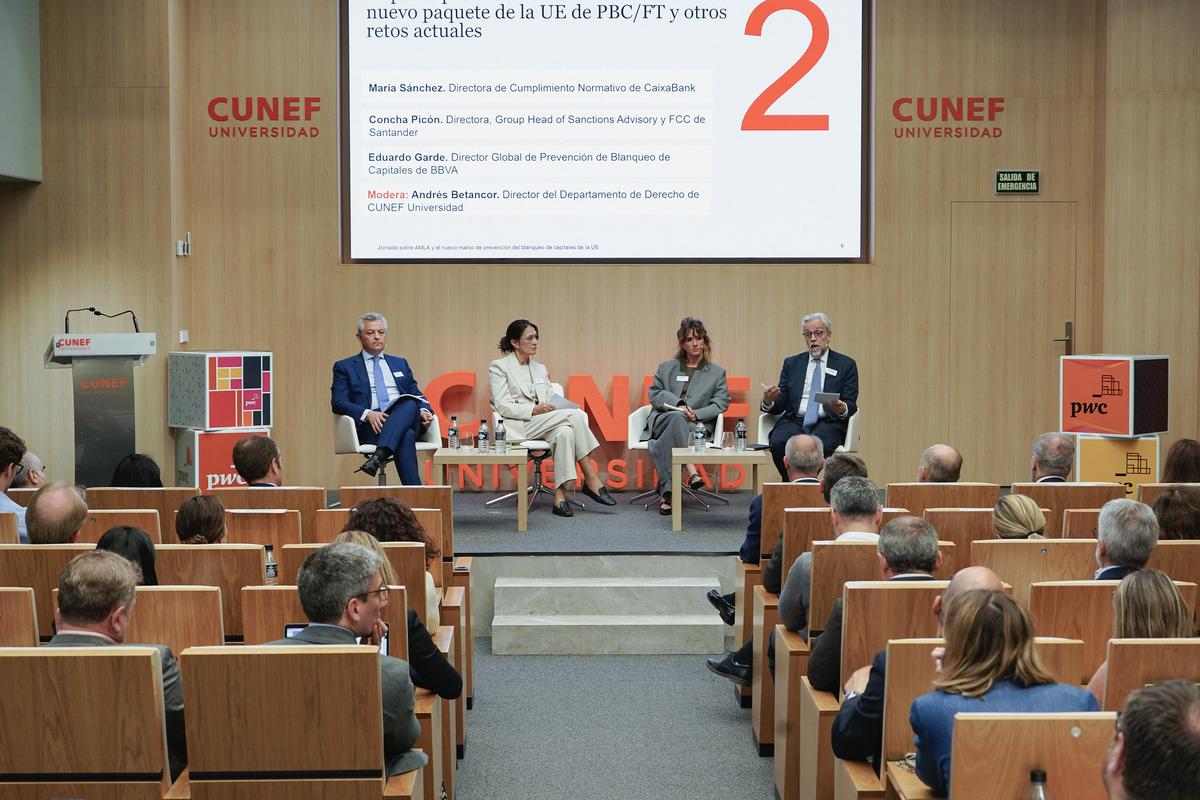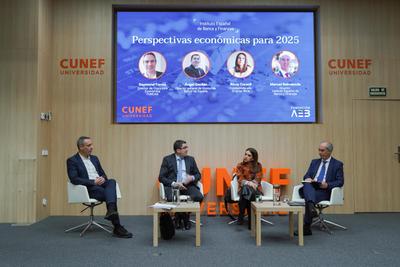
- Home
- IEBF, CUNEF Universidad and PwC hold a conference on the challenges posed by the new European Anti-Money Laundering Authority

IEBF, CUNEF Universidad and PwC hold a conference on the challenges posed by the new European Anti-Money Laundering Authority
19 May 2025
On Monday, 19 May, the Spanish Banking and Finance Institute (IEBF, for its acronym in Spanish), CUNEF Universidad and PwC held a conference on “AMLA and new regulations to prevent money laundering in the EU”, which brought together representatives of competent authorities in this field, as well as of leading financial institutions. The speakers analysed and discussed the challenges posed by the emergence of the newly established EU Authority for Anti-Money Laundering and Countering the Financing of Terrorism (AMLA) and the practical effects of the new European anti-money laundering rules.
The conference, which was held in the Auditorium of CUNEF Universidad, featured a keynote speech by Juan Manuel Vega Serrano, candidate for the AMLA Executive Board and former President of the FATF (Financial Action Task Force). It also included two round-table discussions where panellists analysed the coordination and supervision challenges brought on by the creation of AMLA and the Sixth AML/CFT Directive, and the impact on financial institutions of the new EU package and other challenges.
In his keynote speech, Juan Manuel Vega Serrano outlined the legislative changes made by the EU and the reasons for the creation of the new European anti-money laundering agency, tasked with supervising, regulating and coordinating financial intelligence units. In this regard, he described the lines of the new regulatory framework and highlighted that AMLA, national financial intelligence supervisors and units, and the private sector will need to work very hard in the next three years to implement the new system.
In the first round-table discussion, chaired by María Peco, Senior Advisor for Legal Affairs and Anti-Money Laundering at the Spanish Banking Association, panellists Pedro Comín, Director of the Executive Service of the Commission for the Prevention of Money Laundering and Monetary Offences (Sepblac), Carolina Lameiro, Deputy Director-General of Inspection at the Directorate-General of Insurance and Pension Funds, and José María Díaz Taboada, Head of the Money Laundering Prevention Unit of the National Securities Market Commission (CNMV), pointed out that coordination and cooperation are key in the transition to AMLA, which is already being prepared with the participation of Spanish authorities, and in the application of new EU regulations.
The second round-table discussion featured panellists María Sánchez, Director of Regulatory Compliance at Caixabank, Concha Picón, Director, Group Head of Sanctions Advisory and FCC at Banco Santander, and Eduardo Garde, Global Head of Anti-Money Laundering at BBVA, and was chaired by Andrés Betancor, Director of the Department of Law at CUNEF Universidad. The speakers discussed the impact of AMLA and recent regulatory changes on governance and control in financial institutions, as well as due diligence and the relationship with regulators in both Spanish and global businesses.
The conference was closed by Álvaro Benzo, Managing Partner and Financial Services Risk & Regulatory Leader at PwC, who explained that the lessons learned in other supervisory integration and regulatory convergence processes, such as the creation of the Single Supervisory Mechanism, led by the European Central Bank, could be applied to anti-money laundering. He also highlighted the need to prepare proactively and in advance for regulatory requirements without waiting for their implementation, scheduled for the summer of 2027.
